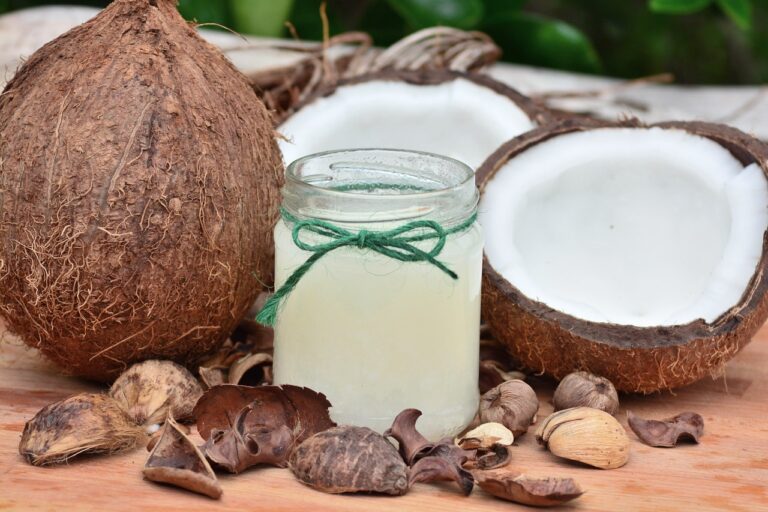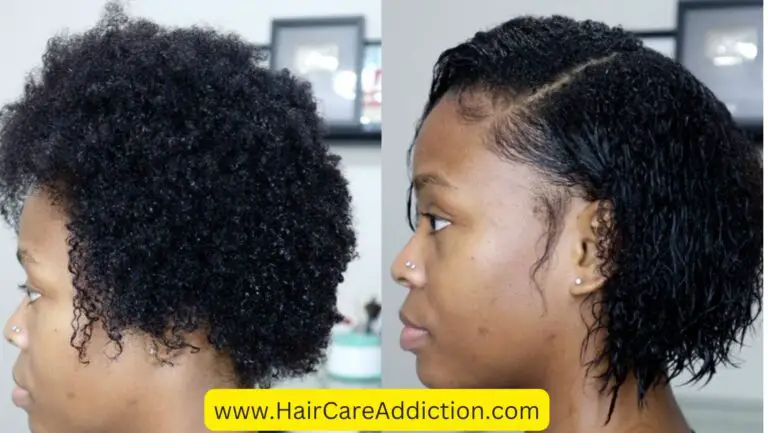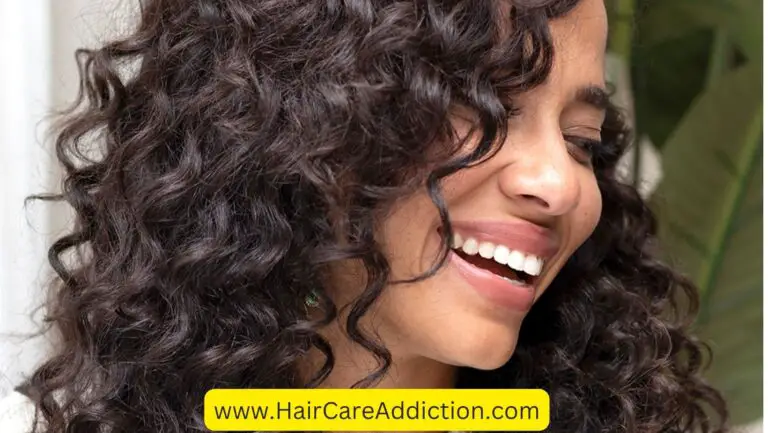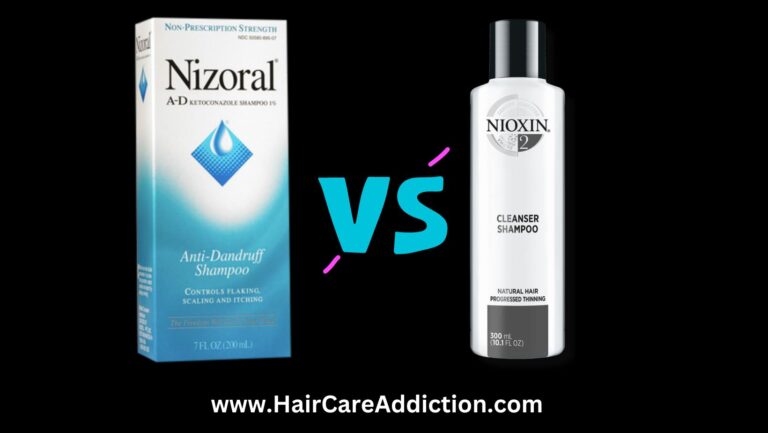Coconut Oil in Hair After Shower: Benefits And How to Apply
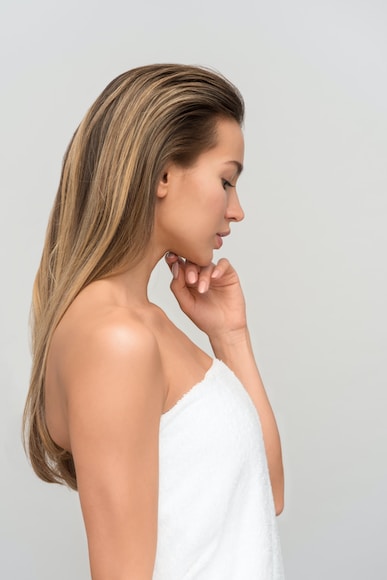
Coconut oil is a natural product that can help your hair in a variety of ways. It can hydrate, strengthen, and repair your hair while also reducing frizz and dandruff.
In this article, we will discuss the benefits and drawbacks of using coconut oil on your hair after a shower. Continue reading.
Why Use Coconut Oil for Your Hair?
Lauric acid, a type of saturated fat found in coconut oil, can penetrate the hair shaft and protect it from protein loss.
Protein is the most important component of hair, and losing it can cause it to become weak, brittle, and dull.
Coconut oil can keep your hair healthy and shiny by preventing protein loss.
Coconut oil can also benefit your scalp by keeping it moisturized and fighting fungal infections.
Dandruff is frequently caused by a fungus called Malassezia, which feeds on your scalp’s natural oils.
Coconut oil can help to reduce scalp flaking by inhibiting the growth of this fungus.
Coconut oil can also be used to soothe inflammation and promote collagen production, which can help to improve the skin’s barrier function and prevent dryness.
In short, benefits of coconut oils for hair are:
- Penetrates and protects the hair shaft, preventing protein loss.
- Keeps hair healthy and shiny.
- Moisturizes the scalp.
- Fights fungal infections on the scalp.
- Reduces dandruff by inhibiting fungal growth.
- Soothes inflammation.
- Promotes collagen production.
- Improves the skin’s barrier function.
- Prevents dryness.
Read Also: Should I Use Oil Before Or After Washing Hair?
Can You Put Coconut Oil in Hair After Shower?

Yes, after showering, you can apply coconut oil to your hair.
Coconut oil can help your hair by moisturizing, strengthening, and repairing it, as well as reducing frizz and dandruff.
You can seal in moisture and keep your hair from drying out by applying it after showering. Coconut oil can also improve the appearance of your hair by making it shinier, stronger, and longer.
Read Also: Best Oil to Apply After Waxing
How to Use Coconut Oil for Your Hair After Showering?
After showering, one of the best ways to use coconut oil on your hair is as a leave-in treatment. This can help to keep moisture in your hair and keep it from drying out.
Pro Tip: Choose unrefined, cold-pressed virgin or organic coconut oil. This preserves the oil’s natural nutrients and antioxidants.
Follow these steps to apply coconut oil to your hair after showering:
- Gently towel-dry your hair and comb out any tangles.
- Take a small amount of coconut oil (about a teaspoon) and melt it between your palms.
- Distribute the oil evenly through your hair, concentrating on the ends and avoiding the roots. Depending on the length and thickness of your hair, you can use more or less oil.
- For a few minutes, massage the oil into your hair and scalp.
- Leave the oil in your hair for 20 to 30 minutes, or overnight for a more intensive treatment.
- Rinse with warm water and shampoo as usual to remove the oil.
How Long Should You Leave Coconut Oil in Hair?
The amount of time you should leave coconut oil in your hair depends on the type and condition of your hair.
In general, leave it for at least 20 to 30 minutes, or overnight for a more thorough treatment.
If you have fine or oily hair, you should leave it on for a shorter period of time (10 to 15 minutes) or skip the scalp application to avoid weighing down your hair or clogging your pores.
If your hair is dry or damaged, leave it on for a longer period of time (up to an hour) or apply it more frequently (once or twice a week) to restore moisture and protein.
Can You Use Coconut Oil on Hair Everyday?
If your hair is very dry or damaged, you can use coconut oil on it every day to help repair and protect it from further damage.
If your hair is normal or oily, you should use it less frequently (once or twice a week) or only on the ends, as too much oil can make your hair greasy or heavy.
Avoid getting coconut oil on your face or forehead because it can clog your pores and cause acne.
Tips and Precautions
Here are some tips and precautions about coconut oil:
- Best for: Hair that is dry, coarse, or curly and needs moisture and protection.
- It is not recommended for fine, oily, or thinning hair because it can weigh it down or cause buildup.
- Some hair products are incompatible: Coconut oil should not be mixed with water or alcohol-based products because it can cause clumping or stickiness.
- Compatibility with color-treated or bleached hair: Because coconut oil can alter the color, especially in lighter shades, perform a patch test before applying all over.
- Allergic reactions: Individuals who are allergic to coconuts or nuts may experience allergic reactions; discontinue use and seek medical advice if any adverse reactions occur.
Conclusion
Finally, coconut oil can be an excellent addition to your hair care regimen, providing numerous benefits such as hydration, strength, and scalp health.
It prevents protein loss, combats dandruff, and promotes overall hair and scalp health. It can seal in moisture and improve hair texture when applied after showering.
To avoid potential drawbacks, choose the right type of coconut oil and use it according to your hair type and condition. Coconut oil, when used correctly, can help to make hair healthier, shinier, and more vibrant.

